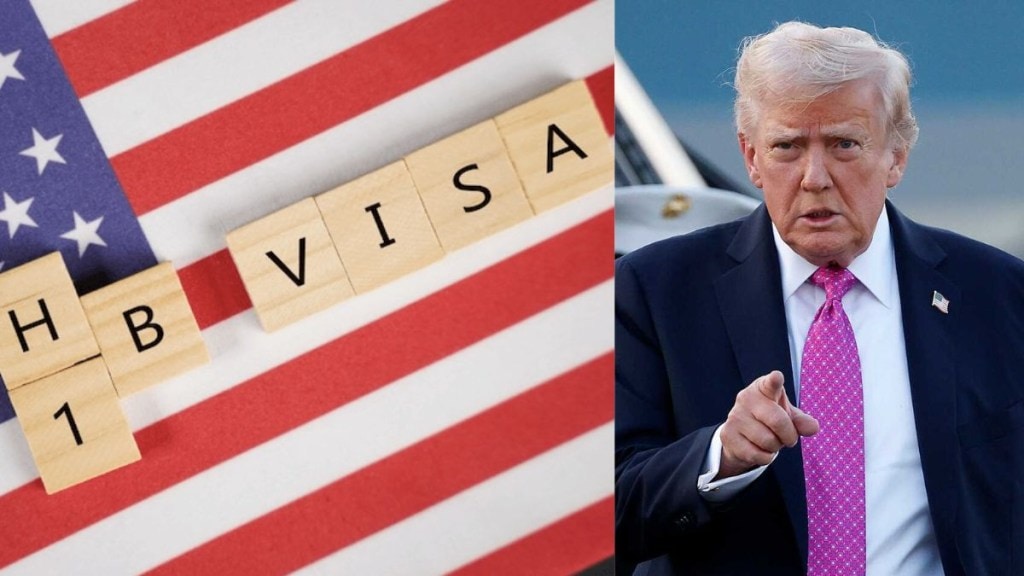When President Donald Trump announced a new $100,000 fee for H-1B visa, it was a shocker to many. For years, the H-1B visa program has been a key way for American tech companies to bring in skilled workers from abroad.
But with the new cost, many companies are now rethinking their hiring strategies and experts say it could accelerate a global shift in how and where tech work gets done.
More companies are turning to outsourcing
The steep visa fee has made companies think twice about bringing foreign workers into the US tech giants like Oracle, Meta, Apple, and especially Amazon, which received over 10,000 H-1B approvals in 2025 are now exploring new options.
Instead of paying $100,000 for a visa, companies are looking at outsourcing talent abroad, where workers can be hired remotely at lower costs.
Nicole Sahin, CEO of Globalization Partners, a firm that helps companies hire international talent, told Business Insider, without needing a US work visa, said the demand for global hiring solutions has increased since the fee hike. About 25% of tech companies are already outsourcing as a strategy to stay competitive.
Sahin explained that instead of relocating talent to the US, companies are offering global salaries and letting employees work from wherever it makes sense.
Many skilled workers who once worked in California are now moving back home and continuing their jobs remotely, stretching their pay further in countries with lower living costs.
Even as some big tech companies push for return-to-office policies, working from home has actually become more common since 2023, especially among startups looking to attract talent.
Somak Chattopadhyay, founder of Armory Square Ventures, a $60 million fund focused on software startups and a member of New York State’s Emerging Technology Advisory Board, told CNBC that the search for top-tier talent often extends beyond US borders.
“For the highly specialised talent in the world of AI, there are probably like 500 people in the country that understand how to build an LLM model from the ground up. We don’t have enough talent domestically to fill some of those roles,” he told CNBC.
Startups backed by the fund have, at times, tapped into global talent pools to find the expertise they need. According to Chattopadhyay, while this approach has become necessary for highly specialized roles, the long-term solution lies in expanding the talent pipeline. “But, what we need to do is to find ways to cast a wider net.”
Sahin believes this shift could impact the US economy in the long run. Many immigrants who previously moved to the US to work and eventually build businesses may now choose to stay in their home countries and start businesses there instead.
Changing pay structures and power dynamics
The movement toward remote and international hiring could also shift wage trends. While foreign workers on H-1B visas often earn less than their US counterparts, their presence has been linked to rising wages for American employees at the same firms, according to research by Han Stice, an associate professor at George Mason University.
Still, outsourcing jobs to countries with lower wages could increase pay in those regions while adding pressure to US wages. The average monthly wage in the US is over $6,900—among the highest globally—while countries like India and China, from where many H-1B visa holders originate, fall far lower on the global wage scale.
Even if the US government tries to discourage outsourcing by imposing taxes, Devashish Mitra, a professor at Syracuse University, told Business Insider that it could still make financial sense for tech companies. Offshoring work to countries like India could cost a quarter—or even less—than hiring in the US, making it an appealing option even with penalties.
HIRE act and outsourcing
Meanwhile, the HIRE Act (Halting International Relocation of Employment Act), introduced in the US Senate in September 2025 by Senator Bernie Moreno, aims to reduce outsourcing by adding a 25% excise tax on payments US companies make to foreign service providers.
These “outsourcing payments” include fees for services, royalties, and consulting, and they won’t be tax-deductible. The money raised would go into a Domestic Workforce Fund to support job training and apprenticeships in the US. The bill is designed to make offshoring more expensive and encourage businesses to hire domestically.
Companies that rely on international services in areas like IT, healthcare, design, or finance may see their costs rise sharply, and non-compliance could result in heavy fines. India, which earns over 60% of its IT export revenue from the US, could be hit hard.
Its firms may see delays in contracts, higher costs, and might shift operations to US-based subsidiaries to avoid the tax. Indian Global Capability Centers could face delivery cost hikes of up to 60%.

